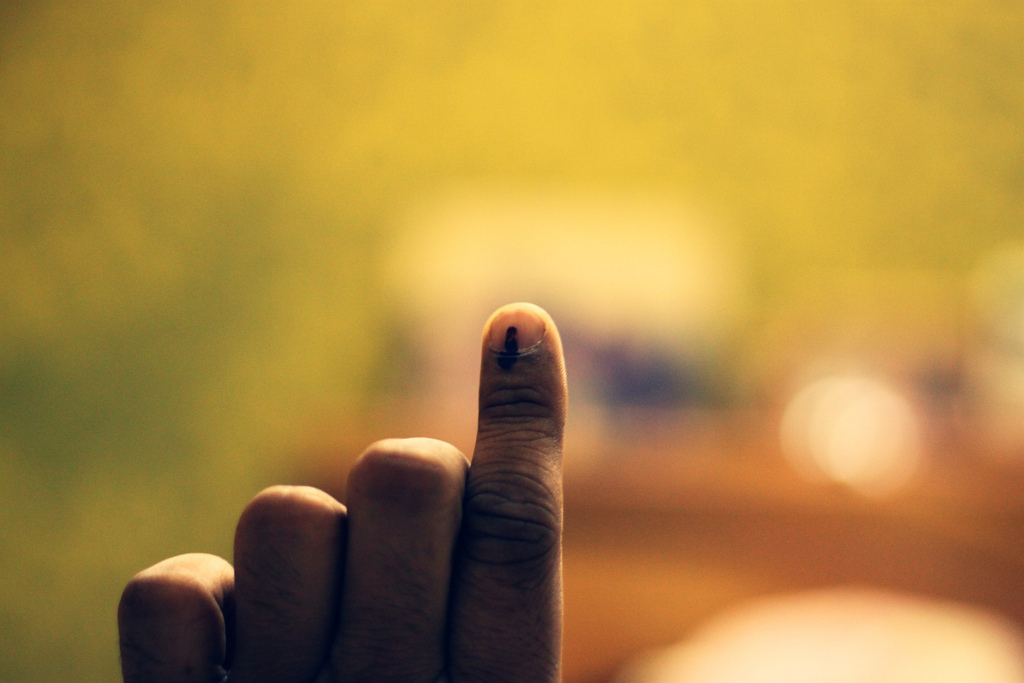Nigeria: A democracy where votes are for sale
November 2nd, 2018 The power of the people is eroded when vote buying takes place, writes Folmi Yohanna, 28, a Commonwealth Correspondent from Bauchi State in Nigeria states, who argues that this has been a trend in Nigeria which must not be allowed to continue in the country’ s 2019 elections .
The power of the people is eroded when vote buying takes place, writes Folmi Yohanna, 28, a Commonwealth Correspondent from Bauchi State in Nigeria states, who argues that this has been a trend in Nigeria which must not be allowed to continue in the country’ s 2019 elections .
Abraham Lincoln defined democracy as government of the people, by the people, for the people. In a democracy, ultimate power lies with the people. People get to elect their representatives and these persons get to decide who gets what, when and how.
However as we approach the 2019 general elections, we are witnessing a worrying trend that has been rearing its ugly head in the Nigerian electoral process – vote buying.
This is happening in a country which has a democracy, specifically the federal system of governance which is seen as the best system for Nigeria due to the heterogeneous nature of the nation, and large population. In this system of government the grassroots should be able to feel the presence of government and development should be accelerated.
Having experienced intermittent military rule after independence, Nigeria returned to democracy in 1999 and since then, elections have become the means by which political leaders are elected at all levels. There was so much hope among the populace when the country returned to a democratic system of government. Democracy should have provided an opportunity for accelerated economic growth and development in the country after years of military rule; however, that has not been the case.
Earlier this year, in the governorship election in Ekiti State there were reports of vote buying before and during elections. Several recordings emerged on the internet showing party officials and agents involved in the election sharing cash to electorates in return for their votes. A national daily in Nigeria reported that people were offered as little as ₦5000 (Five Thousand Nairas) that is around $13 (Thirteen Dollars) to elect a governor that will be handling the affairs of the state for four years; in some areas of the state voters were given less.
The vote buying that happened in the Ekiti State governorship election is not a new phenomenon in the country, however, analyst were of the view that the Ekiti election took it to another dimension.The British High Commission to Nigeria, Paul Arkwright condemned the vote buying in Ekiti and described as a form of electoral misconduct.
Also, in the bye-elections that took place in the month of April in Katsina, Kogi and Bauchi states, there were allegations of vote buying. A former Deputy National Publicity Secretary of the APC Timi Frank accused the party of vote buying during the bye-elections as reported in Daily Trust of 13, August, 2018, a national daily in Nigeria. If votes are bought, then how can we make our leaders accountable?
Under the Nigerian Electoral Act 2010, particularly section 130, criminalizes vote buying which is punishable under the Act either by paying a fine of ₦100,000 ($275) or imprisonment for a term of 12 months or both. But that has not stopped people from engaging in the act. The problem of vote buying in elections can be attributed to poverty. A recent report by World Poverty Clock at the end May, 2018 says Nigeria has the largest number of people living in extreme poverty in the world; this is enough reason for people to be manipulated into selling their votes for meagre sums.
Furthermore, the electorate is not well informed about democracy and the electoral process; people don’t realize the power they have over their leaders, that is why they fail to hold them accountable when they don’t deliver the dividends of democracy to them.
Ahead of the 2019 general elections in Nigeria, all hands need to be on deck to prevent or minimize vote buying. This can only be done by embarking on a massive voter education campaign; the Independent National Electoral Commission in conjunction with prosecuting agencies also need to prosecute all offenders, and political parties should take responsibility for not continuing such acts and condemning them.
Photo credit: Incredibly Numingvia Flickr (license)
………………………………………………………………………………………………………………
About me: I am legal practitioner practicing in Nigeria. I would love to be at the top of my career and hopefully, publish books. Also, be an agent of positive change in Nigeria and the world.
I love reading, practicing my profession, doing voluntary humanitarian activities, watching and playing of football and I love playing video games.
…………………………………………………………………………………………………………………
Opinions expressed in this article are those of the author and do not necessarily represent the views of the Commonwealth Youth Programme. Articles are published in a spirit of dialogue, respect and understanding. If you disagree, why not submit a response?
To learn more about becoming a Commonwealth Correspondent please visit: http://www.yourcommonwealth.org/submit-articles/
…………………………………………………………………………………………………………………




